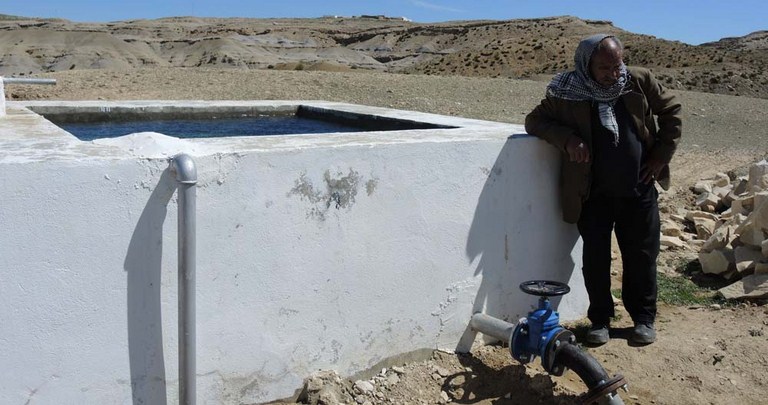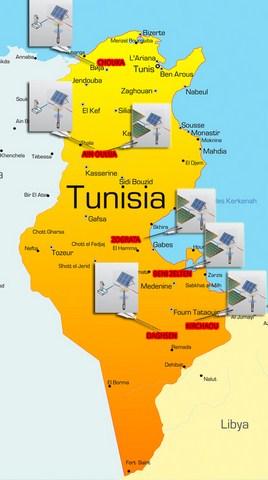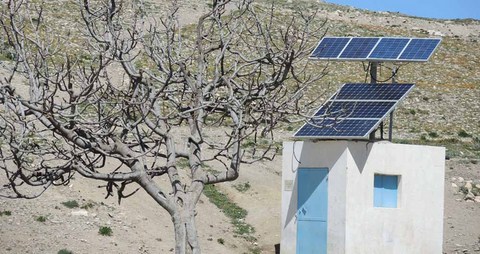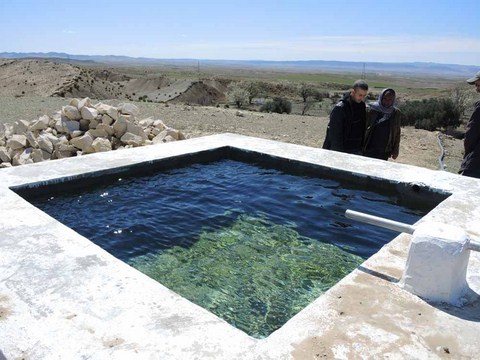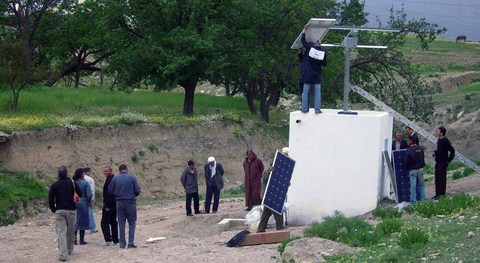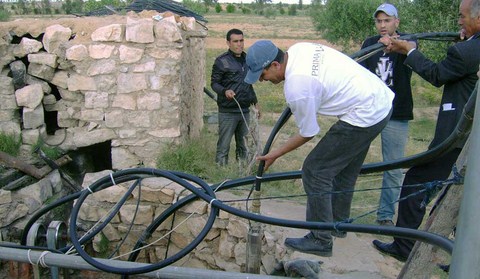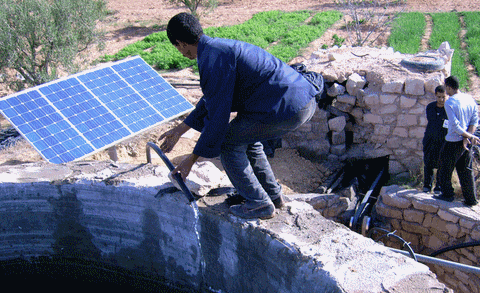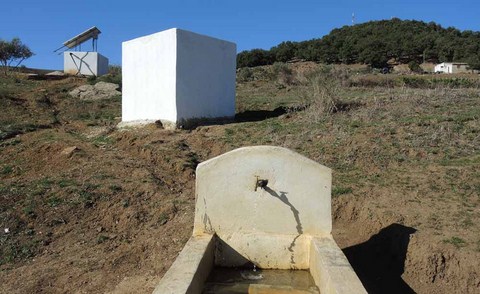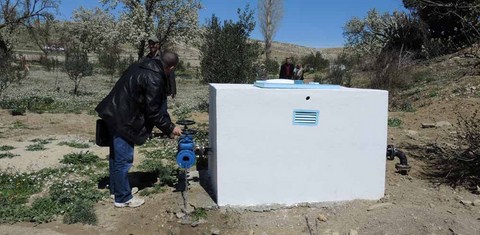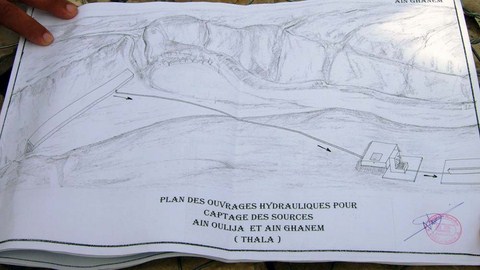Solar Water
The United Nations defines desertification as one of the most alarming processes of environmental degradation. In arid areas of North Africa the poorest layers of the population, who live by subsistence farming, have to pay the strongest consequences. In much of the Tunisian hinterland, drought and soil erosion lead to an inexorable process of desertification. Tunisia has always had to deal with limited water resources, also due to internal political and cultural factors: an incorrect use of water; a lacking public management of the water system.
Over the past 10 years, Zoe Association has constantly worked in some governorates of Tunisia (Beja, Gabes, Kasserine, Tataouine) with solidarity projects to improve the difficult conditions experienced by local populations in accessing water.
Solar pumps put into operation water wells abandoned because of the high costs of extraction previously practiced with diesel engines. As a matter of fact, many wells are abandoned because of the inability to pump water, sometimes for lack of pumps, sometimes for lack of energy or economic resources. The intervention contributes to improving the economic conditions of marginalized populations, introducing the use and knowledge of renewable energy systems, and allows families of rural villages to irrigate cultivated fields at no cost by limiting the damage of desertification taking place in the area.
The project is being carried out in collaboration with local partner UTSS (Union Tunisienne de Solidarité Sociale), one of the most active NGO in Tunisia, and supported with funding from Waldensian Church




